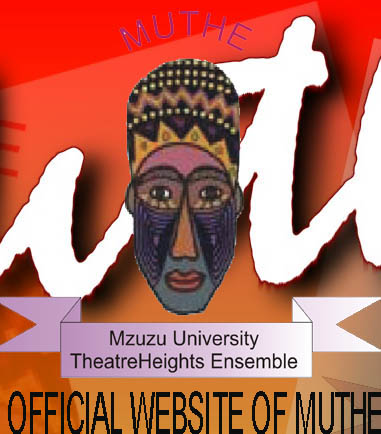 For those of us who work as theatre practitioners the answers are multifarious; the adrenalin of performance; the pleasure in the word and the astonishing capacities of body and voice; the sometime love and laughter of a collaborative and genuinely creative workplace; the never-to-be-repeated moments of sheer astonishment at the beauty of discovery in the rehearsal room; the continual education that each new work in its surrounds offers the curious and open-minded.
For those of us who work as theatre practitioners the answers are multifarious; the adrenalin of performance; the pleasure in the word and the astonishing capacities of body and voice; the sometime love and laughter of a collaborative and genuinely creative workplace; the never-to-be-repeated moments of sheer astonishment at the beauty of discovery in the rehearsal room; the continual education that each new work in its surrounds offers the curious and open-minded.But for the audience it must be different; as an audience, whether insider or no, we see or experience a result: sometimes a creation-in-the-moment to be sure, but more often something crafted and honed, full of disguises, illusion, masks against effort, skill and so on. And often, of course, as is the way of all creation, that result disappoints, dissatisfies, thwart our expectations. And certainly, by comparison, the sheen of the cinematic/televisual image has an allure and a certitude that live performance rarely attains, without resort to a theatre of illusion and vast expense. Wherein then, lies the charm?
Part of the theatre experience is purely sensual of course; the pleasure of entering unfamiliar and strange ramshackle buildings, or coming upon an entirely new spatial configuration in a familiar room; the excitement of a room growing dark; the simultaneous danger and allure of performers' bodies in the space around us; that immediacy and sensuality of human body and voice and live music (when it occurs) which invariably wins out over the tamed, canned auditory experience, blaring from the radio, speakers, where the very precision of the instrument paradoxically serves only to strip all voices of their real particularity, individuality, sensuality.
But these are, in part, dare one say it, merely the pleasures of sport. And in the theatre, the multiplicity of dialogues that exist - between performers and audience; between the various technological media at work; amongst the performers themselves; and between them and the technological forces employed - create the possibility of an intellectual engagement at a level which purely electronic media can only gesture at. The sheer subtlety of a performer's gaze - in its simple meaning - and the complexity of the gaze of the audience - in its more complex, theoretical meaning - (which alters, of course, from performance to performance) has, for us at least, a fascination about it which locates the experience at the heart of the creative act.
But there remain other issues; because the theatre is also and always, the circus. Theatre is a high-wire event through time with the constant risk of falling off and never being able to recover. No fixed media offers this sort of risk. To be an artist, as Samuel Beckett characteristically humourously and pessimistically offered is always 'to fail, where no other dare fail', and in live performance this possibility exists in every moment of every performance, not just at the point of conception, preparation, rehearsal or completion.
And within this issue of the frailty of the performance, lies another, the very real vulnerability of the performer, the artist; and here, possibly, the real truth of its importance for those who continue to practise theatre, truly lies - in the question not of our power to woo and entertain an audience but of our weakness.. We feel to be sure; we are often swayed and too often perhaps, manipulated, but we rarely have feelings of awkwardness, exposure or embarrassment. However on stage, the sheer vulnerability of the human being in front of us surely confronts us with our own; they can succeed, to be sure, but they can also fail and in that possibility of failure, lies perhaps our own, much truer sense of self - not the glossy romantic image of success and invulnerability (and hence superiority) offered by countless television screens, but the real sense that in our vulnerability and weakness we are fully human and thus fully connected with those around us, and more particularly with that dangerous, shining, mercurial figure on the stage who, in her exposure and vulnerability and moment of risk, is entirely a mirror of our true selves.
Author: Unknown

